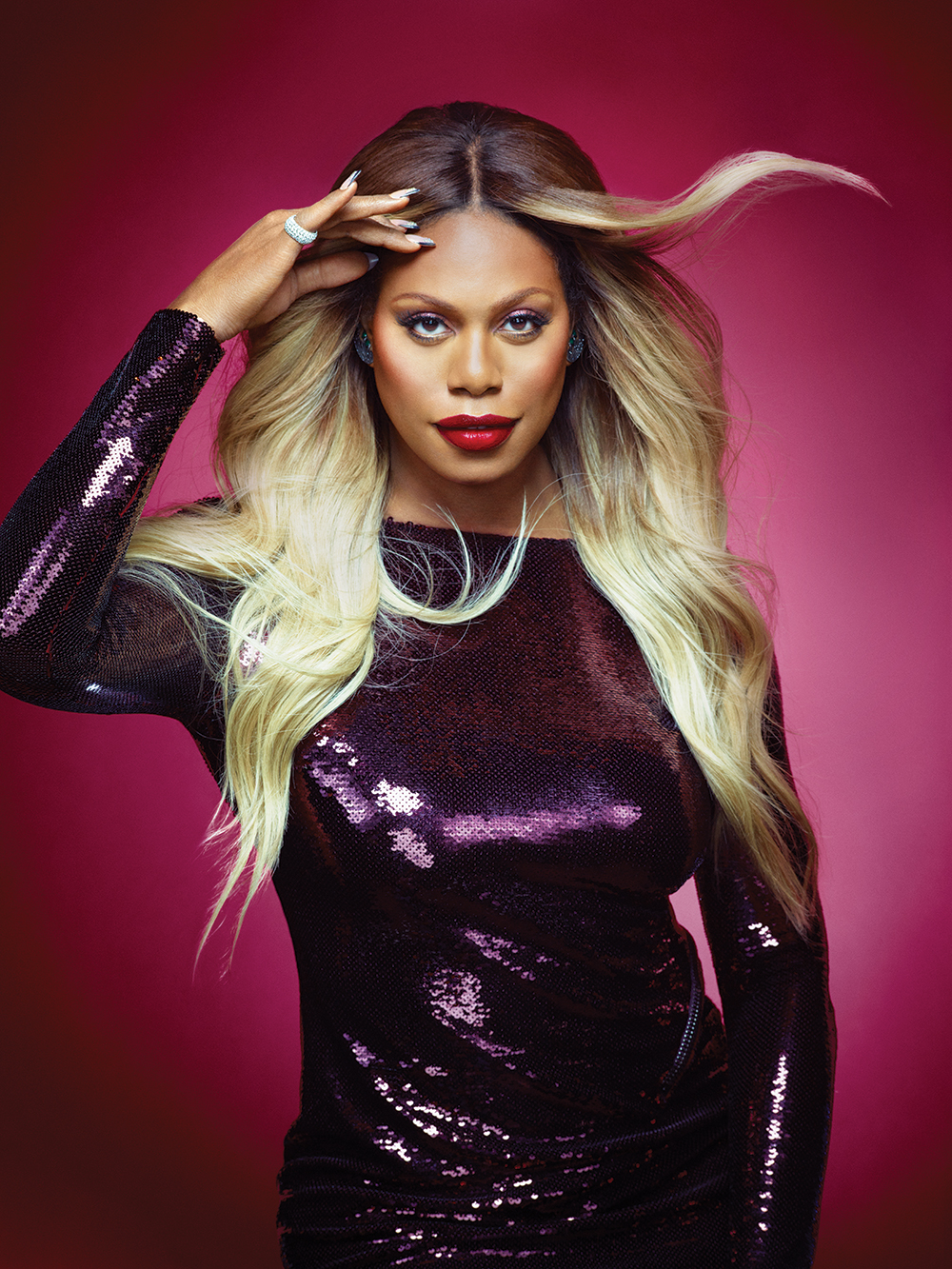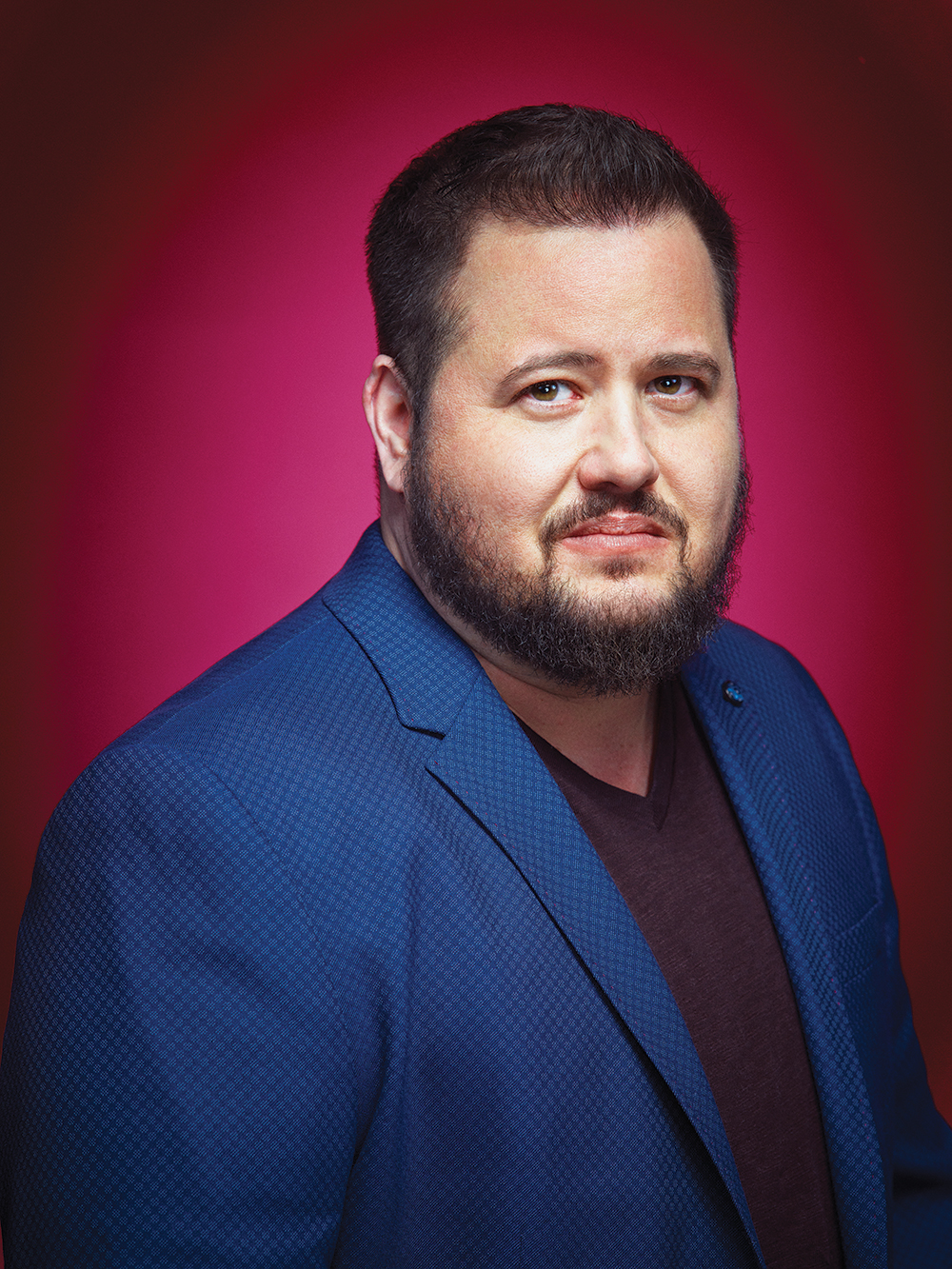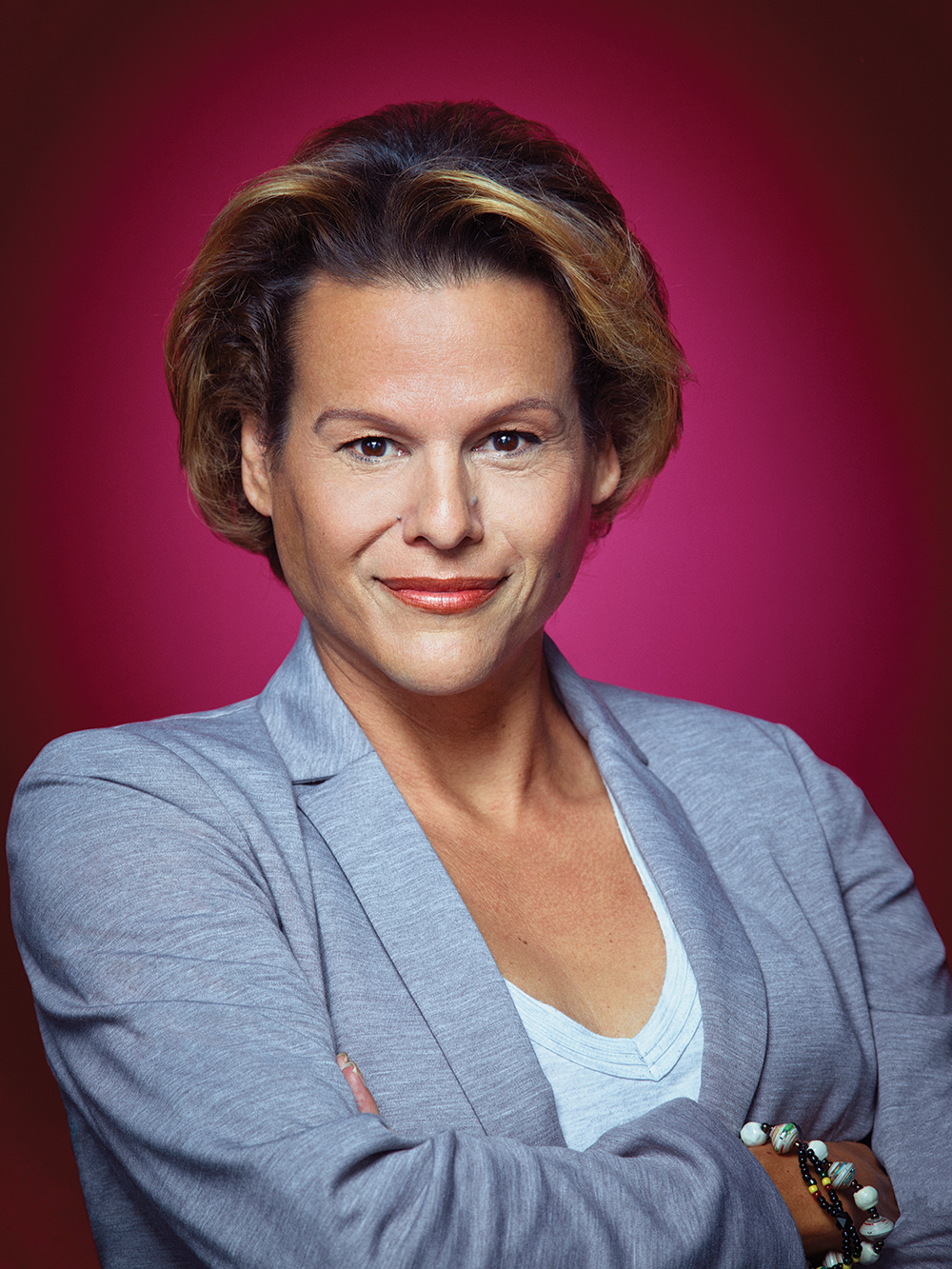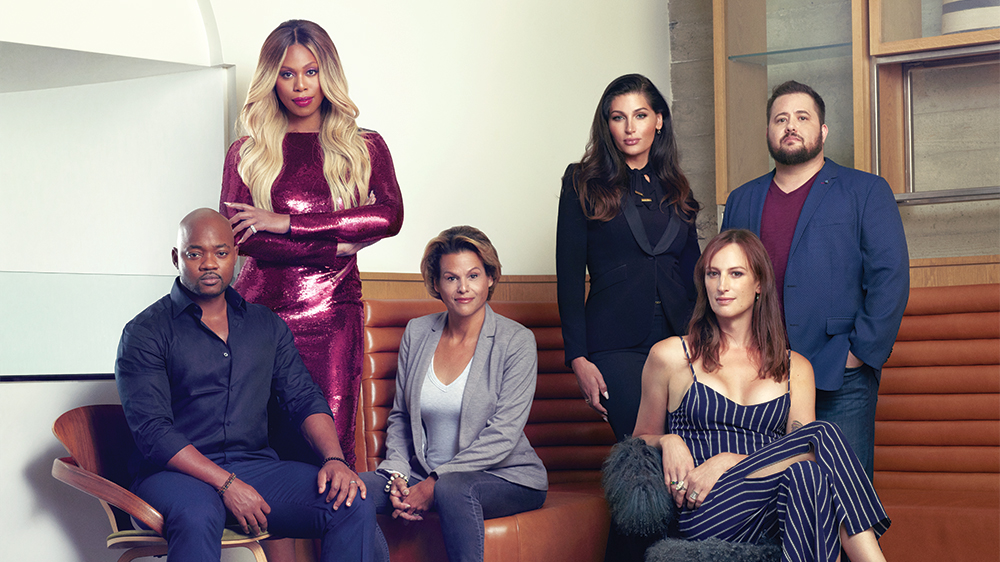Transgender Actors Roundtable: Laverne Cox, Chaz Bono and More on Hollywood Discrimination
By Ramin Setoodeh
LOS ANGELES (Variety.com) – As a transgender woman, Trace Lysette had watched from the sidelines as actors like Eddie Redmayne (“The Danish Girl”) and Matt Bomer (“Anything”) played
members of her community on the big and small screen. When news hit last month that Scarlett Johansson would portray a transgender man in the biopic “Rub and Tug,” she could no longer stay quiet. Since the “Transparent” actress wasn’t getting opportunities to audition for cisgender (non-transgender) roles, she argued on Twitter that the industry should at least allow transgender actors to play what they know.
“What I tweeted was a knee-jerk reaction,” Lysette tells Variety on a recent afternoon. “It was just me hitting a breaking point. When I saw this, I was like, ‘Enough!’ It wasn’t against Scarlett personally. It was more pointing out the double standard. I’m not getting into rooms for cis roles. I started my career auditioning for those roles, and then I went to play trans roles. And now, I feel boxed in.”
After considerable backlash on social media, Johansson announced on July 13 that she’d be exiting “Rub and Tug,” while expressing her admiration for the LGBTQ community.
But her decision to drop out of the project creates more questions than answers for an industry with a terrible track record on diversity in general. There are barely any A-list openly gay actors making movies. As far as transgender actors go, they are at the bottom of Hollywood’s totem pole. A study by GLAAD last year found that of the 901 characters in scripted broadcast primetime shows, only 17 — that’s 1.9% — were transgender.
While that is still unacceptably low, it’s better than the zero transgender characters featured in the major studio movies released in 2017.
With a president who has decided to wage a war on transgender Americans by endorsing policies banning them from serving in the military, there’s been a growing sense of panic, and an urgency for these voices to be heard. That’s why Variety invited six artists — Laverne Cox (“Orange Is the New Black”), Chaz Bono (“American Horror Story: Cult”), Alexandra Billings (“Transparent”), Brian Michael (“Queen Sugar”), Jen Richards (“Nashville”) and Lysette (“Transparent”) — to participate in our first transgender actors’ roundtable and cover story.
While they express serious concerns about the policies of the Trump administration, they are also encouraged by representations of trans people on social media and TV shows such as FX’s “Pose.” Here’s what they’d like Hollywood to know about how far they’ve come and where the industry needs to go.
Do you feel like we’re at a tipping point? Laverne, you were on the cover of Time magazine four years ago, to signify your arrival as the first breakthrough transgender star.
: There’s been so much controversy from my last tipping-point moment, I’m not sure I would want to declare that. What I think is going on now that’s really exciting for me, though, is I feel like “Pose” has changed the game. It’s a shame that there’s no one from the show here today.[Note: Creator Ryan Murphy would not allow any of the show’s stars to participate, because he doesn’t want them to do press around transgender-related issues.] I sat and watched the first episode and I just cried, because I knew this talent existed. It felt revolutionary. I said to myself, “This proves that we can do the job, that we can lead shows, that we can write, that we can direct. We can tell our own stories, and it can be brilliant. This is going to change the game.”
: I find myself saying the phrase “a post-‘Pose’ world” a lot, because all the questions are changed now. That’s the difference between now and the last tipping point. It was singular, and it wasn’t a portrait of the entire community. Trace, were you surprised at how much attention your tweet about “Rub and Tug” got?
: I was really surprised. It was just spur of the moment, and me not minding my filter. Sometimes we need to throw the respectability and politics out the window and just speak from the heart and from that primal rage that I think lives in trans people because we’ve been denied for so long.
Richards: For a while, it was me being really loud and aggressive about it. Every time this has happened, going back to Matt Bomer, Eddie Redmayne, Jeffrey Tambor and Jared Leto, we have the same conversation. We think we make a really compelling argument. We think people get it. And then six months later, it comes up again.
Should cisgender actors never play transgender roles and vice versa?
Richards: No one has said that.
Brian Michael: There’s not been many opportunities. I think it’s clear there are enough actors who are talented enough who [are of] trans experience who can do this. And why not let someone who has that authenticity have that opportunity [rather] than someone who’s going to work purely from imagination?
Cox: I think if all things were equal, then everyone should be able to play every character. But all things are not equal. As an artist, I don’t ever want someone telling me that I shouldn’t play something. But the reality is, 84% of Americans do not personally know someone who is transgender. So most Americans learn what they learn about trans people through the media. Right now in this country, in the first days of this year, 10 states introduced 21 pieces of legislation targeting trans people, mostly trying to limit our ability to go to the bathroom. The current president is trying to ban us from the military. Our unemployment rate is three times the national average. So in this cultural environment, when we see representations of cis people playing us over and over again, that reinforces the idea that trans women are not really women and trans men are not really men and nonbinary people don’t exist. That is the basis of the discrimination that trans people experience.
Richards: Every time a casting director chooses a cis person to play a trans part, they’re reinforcing one of two notions. If they cast a cis woman, they’re ultimately saying a trans man is a kind of woman. If they cast a cis man, they are saying a trans woman is a kind of man. And those are dangerous consequences that we’re talking about. It reinforces the notion that we’re duplicitous, that we’re a threat. That trans women are really men in good hair and makeup, that trans men either don’t exist or are just butch women in a suit.
: Let me say that I think it’s great that all of you are here and have these opinions, because I don’t think that way as an actor. I’m an actor who wants to play roles as far away from me as possible. I’ve never played a trans character. I don’t really have the desire to play a trans character. In fact, honestly, I would be afraid to. I like to play really bad, scary, creepy people. I’m 49 years old. I felt the best opportunity that I had for longevity was to do stuff where I was the least recognizable as myself. Not only have I had to deal with being trans; I’ve had to deal with being known as something other than an actor, and with nepotism on top of it. [Bono’s mother is Cher; his father was Sonny Bono.]
Cox: I think that’s what probably happens with a lot of cis folks who want to play us. I think that they want to play something really far from who they are. There’s a part of me that as an artist, I’m like, “Bring it on, and go for it!” But, unfortunately, there are these political realities about it. Alex, you’ve had this incredible career onstage.
Alexandra Billings: I’ve been really lucky because in my theatrical career, which is now going on fortysomething years, I never played a transgender character. Strangely, it only happened when I came to Hollywood.
Lysette: What I would have wished from Scarlett is that she would have stayed attached to the movie [as a producer] and then cast a trans male in the lead. And she can play a supporting role or whatever. Let’s still get it made.
Bono: It’s so funny. My manager called me yesterday. He was like, “Have you seen this picture? This guy’s you!”
Billings: Do this, Chaz.
Bono: This is something I would consider, because this guy’s a scumbag. That interests me.
Cox: We just want more opportunities. I can’t tell you how many people I’ve met over the years who said, “I didn’t think it was possible for me to be an actor, and then I saw you on TV.” Now there’s a generation of trans kids coming up who think that it’s possible for them to be openly trans and actually have a career as an actor. It’s really exciting.
Michael: When I was in high school, the only thing that was remotely trans masculine was “Boys Don’t Cry.” That was a hard movie to watch, because it was so dark, what happened to Brandon Teena. So seeing that, I was like, “If that’s the path that this leads down, I don’t know if I can do this.”
Richards: I was working in my previous career in nonprofit management, and I decided to transition. And I told one of my co-workers, and she looks at me, and she goes, “You mean like Buffalo Bill?”
Cox: From “Silence of the Lambs.”
Richards: That was her only reference point. That’s all she knew. She looked at me and said, “That serial killer who wants to skin women alive?” That’s the kind of stuff that we internalize when the world sees us as monstrous, as something that needs to be hidden and feared. We can’t help but internalize it. I have to fight against that perception every single day, that I’m not monstrous. It’s an act of will.
Cox: Shame can come from inside. But also, when the media representations have been so much of what they have been over the past 100 years, it’s so much work to unlearn that and build shame resilience. I want to give a shout-out to Candis Cayne, who 11 years ago became the first open trans woman to have a recurring role on a primetime TV show [on ABC’s “Dirty Sexy Money”]. It changed my life. A trans actor has never been nominated for an Oscar before.
Cox: As Viola Davis reminded us, you cannot be nominated for roles that don’t exist. We must first be cast.
What is your biggest fear about the Trump administration?
Cox: Besides nuclear war and our president being an agent of Russia? For the trans community, with our previous president so much progress really happened, and most of the progress has been rolled back. So what scares me for kids is that there really are no protections in schools. In places like Mississippi, there are states with laws that are criminalizing trans folks. I’m worried there’s no recourse now. I’m worried there’s no protection.
Richards: It’s never been about the bathroom. They don’t want us to be here at all. And the reason I have hope is because we are still here. And we’re not going away. We were all children under much worse circumstances, and we are here and thriving. So the only thing that I fear right now is despair. And I hope that we are proof that you don’t have to despair.
Why has there not been a trans character in a comic-book movie?
Cox: I’m working on it. We’re all ready to be the next superhero, so call our representatives.
Lysette: Maybe it’s a squad.
Have you lost out on roles because you are transgender?
“Now there’s a generation of trans kids coming up who think that it’s possible for them to be openly trans and actually have a career as an actor.”
Laverne Cox
Cox: We never really know why you don’t get something. I’ve come to the conclusion that if I don’t book something, it’s not for me. I feel like certainly there’s discrimination. Things changed for me when I really started owning it. And I’m happy that I’m getting to do a couple jobs coming up where the characters were not written as trans. I’ve always wondered if the character becomes trans because I’m openly trans.
Do they?
Cox: I don’t know. I think it’s whether or not it’s mentioned.
Billings: I played Mama Rose in “Gypsy,” and I believed that I was trans. I adopted those children. But that was my own stuff. That’s not something that the audience is going to know.
How important has reality TV been to the transgender movement?
Cox: It’s been huge. One of my big breaks has been on reality TV. I did a show called “I Want to Work for Diddy” 10 years ago on VH1. I was sort of competing to be P. Diddy’s personal assistant. And that led me to having my own show called “Transform Me,” which was a makeover show with two other trans women, traveling around the country, making over women who were not trans using what we had learned to transform ourselves. It was a flawed show. But it was great for me at the time. I was interested in having trans people in middle America’s living rooms every week, because I thought that would help change some stuff.
Caitlyn Jenner’s transition was a big moment, with 17 million viewers watching her interview with Diane Sawyer in 2015. Some of you were on her E! docuseries “I Am Cait.” How do you feel about her standing in the community now?
Richards: I was on the whole first season of “I Am Cait,” quite reluctantly. I was the only one that didn’t come back for Season 2. I wanted to be an actor and a writer, and I didn’t like the spectacle of it. I was also a little resentful of the amount of attention that Caitlyn was getting at the time, when I felt there were so many of us who had already been working behind the scenes to increase the public understanding of trans issues. Ultimately, regardless of how I feel about her personally, the fact is after the show, every time I got in a Lyft, someone would recognize me. And then the conversation usually went something like, “I’d never really thought about trans people before, but I watched it with my kids.” I think it’s too easy, because of her politics, which I find reprehensible — we don’t want to throw the baby out with the bathwater. That show put this conversation in places it wouldn’t have otherwise occurred.
Trace, you became part of the #MeToo movement last year with your allegations of being sexually harassed by Jeffrey Tambor on the set of “Transparent.” What was it like to come forward?
Lysette: It was hell. It was really hard. But I’ve never shied away from making decisions out of fear. I knew I had to do the right thing, and the right thing revealed itself to me, and I spoke the truth. [To Billings, who witnessed the harassment she experienced on the set] I was blessed to have you with me.
Richards: For you [Trace] to speak truth to power in that way took extraordinary bravery. I’ve never been more proud of you than the grace you exemplified in that moment. I think it’s really telling that Jeffrey, of all the high-profile men who had been accused of sexual harassment, is the only one who is still working at that level. I think it’s because his accusers were primarily trans women.
Are you surprised that Tambor is still working?
Lysette: No, because we’re trans. I’m used to people not wanting to believe us and being at the bottom of the totem pole. So our word doesn’t carry weight the same way.
Are you both going to be on the fifth season of “Transparent”?
Lysette: Are we?
Billings: You’re damn right we are.
This interview has been edited and condensed.
WATCH THE FULL INTERVIEW HERE:




